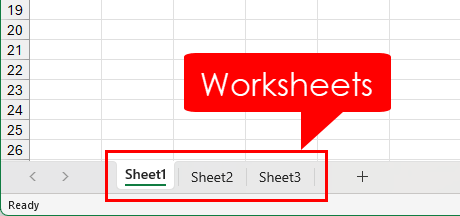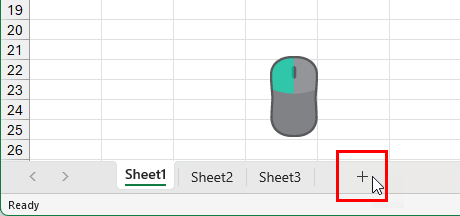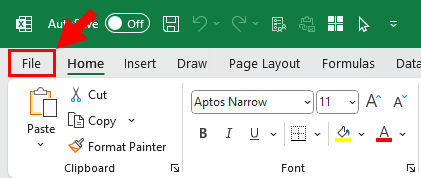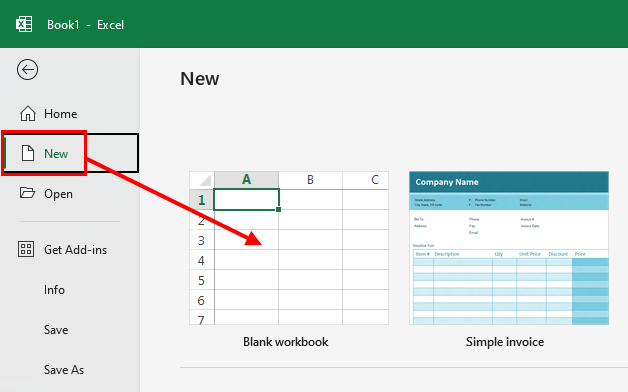
When working with Excel, it’s essential to understand the difference between worksheets and workbooks.
A worksheet is a single page in Excel where you can enter data and perform calculations. Worksheets are the building blocks of your Excel workbook files, allowing you to organize and manipulate data.
On the other hand, a workbook is an Excel file that contains one or more worksheets. Workbooks serve as a container for your individual worksheets.
This post will take a closer look at the key differences between worksheets and workbooks in Excel.

An Excel worksheet, also known as a sheet or tab, is a single page in an Excel workbook where you can input, store, and organize data. Each worksheet consists of a grid of cells, organized into rows and columns, which can store a variety of data types such as text, numbers, dates, and more.
The primary purpose of an Excel worksheet is to store and manipulate data. You can perform operations on the data in cells using formulas. Excel allows you to format cells, rows, and columns to visually present your data.
Some common uses of an Excel worksheet include these.

Follow these steps to create a new Excel worksheet.
That’s it! Now you have a new Excel worksheet where you can input and organize your data using cells, rows, columns, formatting, formulas, and functions.
💡 Tip: You can also use the Shift + F11 keyboard shortcut to insert a new worksheet.
An Excel Workbook is a file created in Microsoft Excel that contains a collection of one or more worksheets.
An Excel workbook file can be saved with a variety of file formats such as the following.
The main purpose of an Excel workbook is to organize and manage related data and calculations.
Workbooks also allow for easy sharing and collaboration with other users through email, OneDrive, and SharePoint cloud storage platforms.

Follow these steps to create a blank workbook in Excel.

This will create a new Excel workbook with a single sheet named Sheet1. Remember that you can add more worksheets to your workbook as needed at any time.
💡 Tip: You can also use the Ctrl + N keyboard shortcut to create a new blank workbook.
A worksheet refers to a single page within an Excel file. Each worksheet has its own tab at the bottom of the Excel window, allowing you to switch between different sheets in the workbook.
Whereas, a workbook is an Excel file that acts as a container to hold all your related Excel worksheets.
Suppose you’re working on a project that requires multiple sets of data. For example, you might be tracking the budget, project timeline, and resource allocation.
Instead of creating three separate Excel files, you can create a single workbook and then create separate worksheets within that workbook for each data set.
This way, you can easily reference and analyze the data from one sheet to another without juggling several files.
Sometimes people use the terms worksheet and workbook interchangeably, but it’s important to clarify their distinct meanings.
A worksheet is a single page within a workbook. Whereas the workbook is the entire Excel file containing one or more worksheets.
Understanding this distinction is vital to avoid confusion when discussing your Excel work with others.
You should now understand the difference between worksheets and workbooks in Excel.
A workbook is a file that contains one or more worksheets. In contrast, a worksheet is a single tab within the workbook.
Hopefully, this knowledge will help you navigate the difference between an Excel worksheet and an Excel workbook more easily!
John is a Microsoft MVP and qualified actuary with over 15 years of experience. He has worked in a variety of industries, including insurance, ad tech, and most recently Power Platform consulting. He is a keen problem solver and has a passion for using technology to make businesses more efficient.
Subscribe for awesome Microsoft Excel videos 😃
👉 Find out more about our Advanced Formulas course!